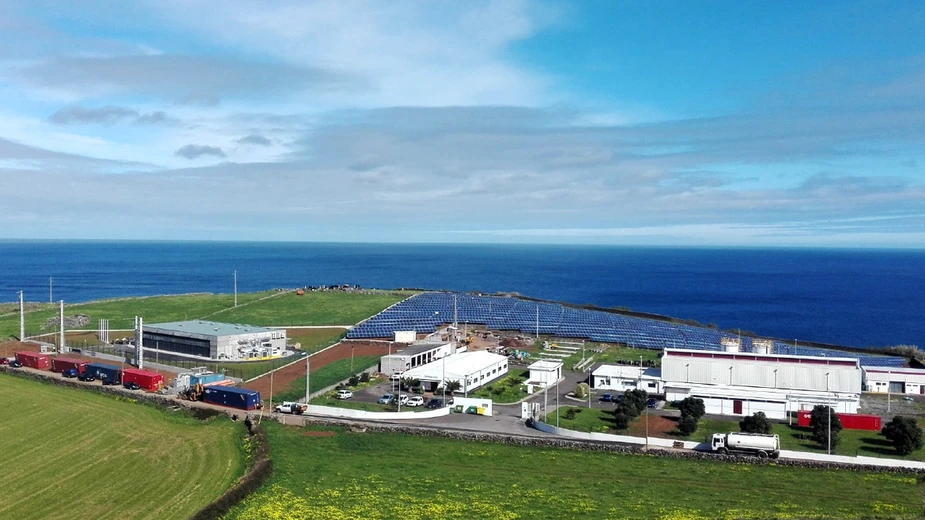Graciosa Microgrid System Proves Environmental Benefits
Forschungszentrum Jülich confirms significant advantages of the renewable energy system on the Azorian Island
A study by the renowned German research institute Forschungszentrum Jülich has quantified significant environmental benefits derived from the world’s first megawatt-scale grid-forming battery system. Analyzing the life cycle impact of all components, the peer-reviewed research compared “inputs”, such as raw materials, and “outputs”, such as various emissions, of the former 100-percent diesel-powered energy system versus the new wind- and solar-energy-based hybrid. The researchers concluded that the Younicos-designed renewable energy system on the Portuguese island of Graciosa will reduce overall environmental impacts by approximately 43 percent.
The study also found that 60 percent of the remaining environmental impacts are caused by the residual diesel-based electricity generation. In contrast, the remaining environmental impacts associated with the construction and operation of the 4 megawatt battery energy storage system, accounts for only 6 percent. The 4.5 megawatt wind and 1 megawatt photovoltaic parks account for 18 and 14 percent, respectively.
“We’re grateful for the clearly positive results of this in-depth research, which is further proof of what has been our conviction all along: Intelligent batteries are the best driver of a cleaner, more efficient power supply”, said Stephen L. Prince, CEO of Younicos. “The best part is, as battery costs continue to decline, even more money and CO2 can be saved by simply increasing the storage capacity of our systems.“
In a statement the research center Jülich commented: “The study underlines the enormous potential of lithium-ion batteries for reducing the environmental impact of electricity generation. By providing critical grid-balancing services, battery plants such as the system developed by Younicos enable the use of a much larger share of renewables. As a result, the use of diesel can be substantially reduced – and generators can be run much more effectively, saving even more fuel.”
The 3.2 megawatt-hour grid-forming battery system, which Younicos pioneered for the Graciosa system, allows clean but variable generation from wind and solar to take over base-load generation. This functionality is based on the batteries being able to provide multiple system services to the grid, such as frequency and voltage control, and black start capability. As a result, diesel generators are required only for back-up, saving expensive imported diesel fuel and reducing CO2 emissions.
The resulting annual 65 percent utilization of renewable energy is determined mainly by the capacity of the battery system, which was sized to maximize economic return, given the relatively high cost of capital for such pioneering projects. Increasing storage capacity allows increased amounts of renewable electricity generation, which has thus far been curtailed, to be integrated – which directly leads to a significant further reduction of environmental impacts.
The study will be presented at the 11th International Renewable Energy Storage Conference / Energy Storage Europe which takes place in Düsseldorf from 14th to 16th March 2017.
Press contact:
Younicos AG
Am Studio 16, D-12489 Berlin
Philip Hiersemenzel (Europe)
Tel.: +49 30 818799010
press(at)younicos.com
Gene Hunt (Northern America)
Tel.: +1 978 7500333
pressrelations(at)younicos.com
